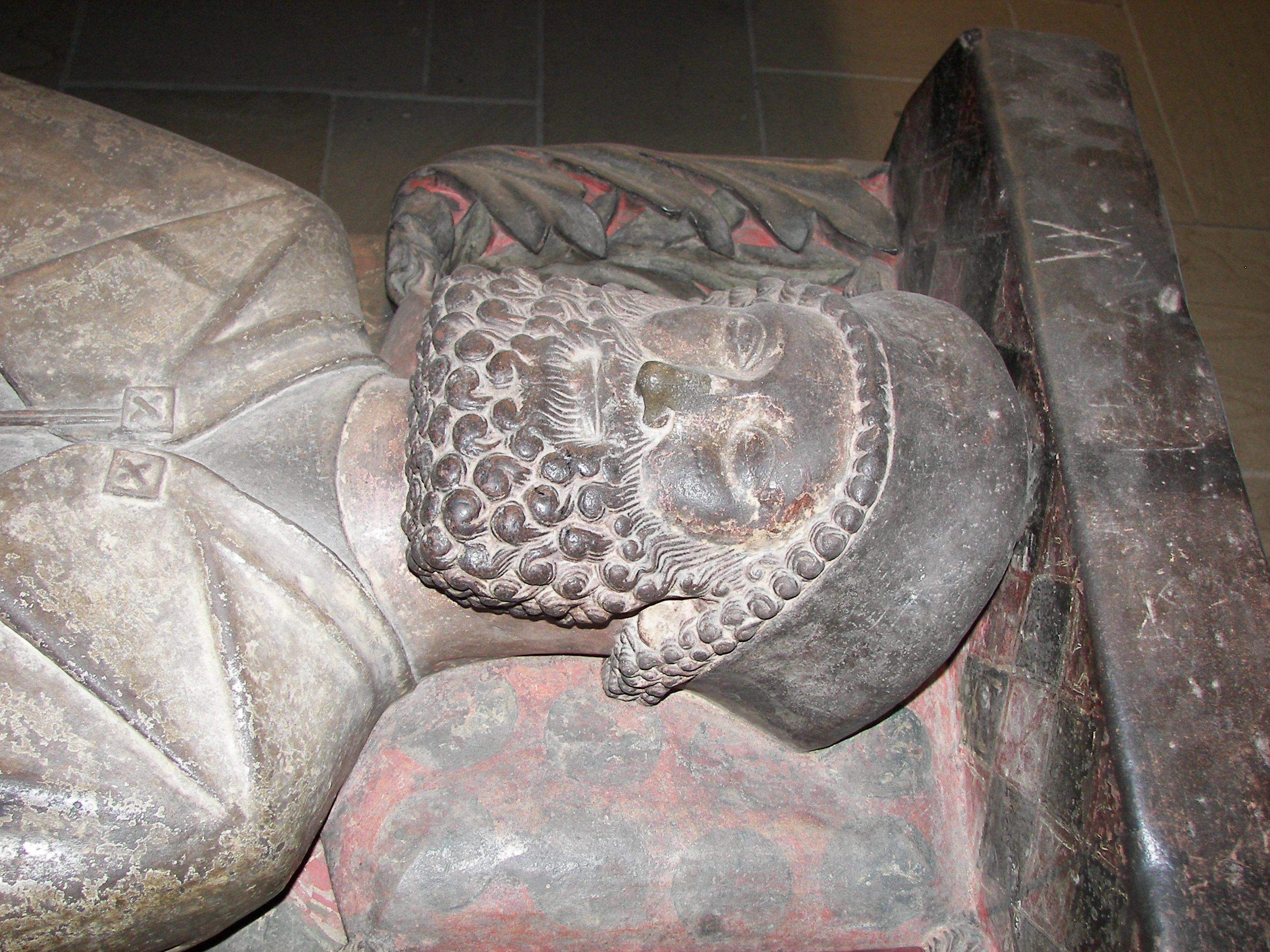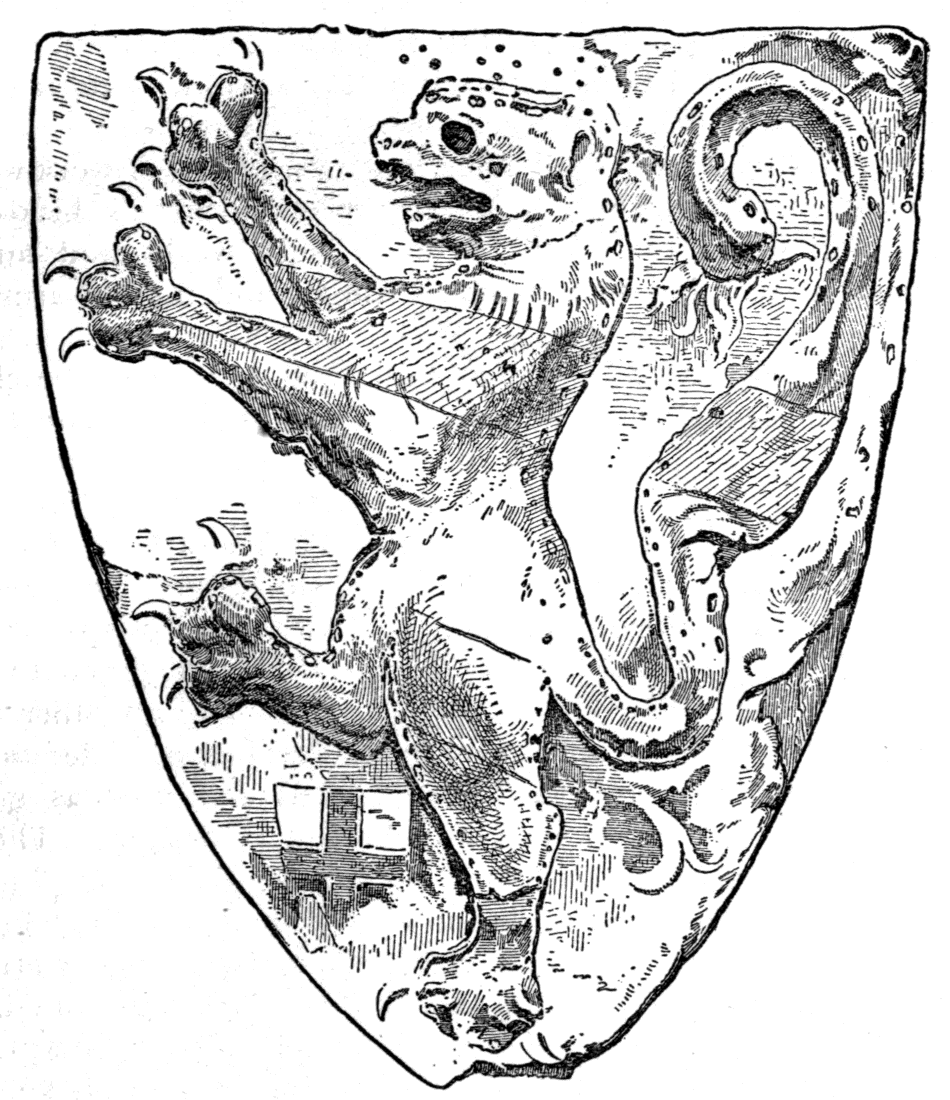Konrad von Thuringen on:
[Wikipedia]
[Google]
[Amazon]
 Conrad (german: Konrad von Thüringen; c. 1206 – 24 July 1240) was the
Conrad (german: Konrad von Thüringen; c. 1206 – 24 July 1240) was the  Elisabeth had founded a hospital in
Elisabeth had founded a hospital in
 Conrad (german: Konrad von Thüringen; c. 1206 – 24 July 1240) was the
Conrad (german: Konrad von Thüringen; c. 1206 – 24 July 1240) was the landgrave of Thuringia
This is a list of the rulers of Thuringia, a historical and political region of Central Germany.
Kings of Thuringia
*450–500 Bisinus
*500–530 Baderich
*500–530 Berthachar
*500–531 Herminafried
:''Conquered by the Franks. ...
from 1231 to 1234 and the fifth Grand Master of the Teutonic Knights
The Order of Brothers of the German House of Saint Mary in Jerusalem, commonly known as the Teutonic Order, is a Catholic religious institution founded as a military society in Acre, Kingdom of Jerusalem. It was formed to aid Christians o ...
from 1239 to 1240.Nicolaus von Jeroschin, ''A History of the Teutonic Knights in Prussia 1190-1331'', transl. Mary Fischer, (Ashgate Publishing, 2010), 120. He was the first major noble to join the military order.
Conrad was the youngest son of Hermann I, Landgrave of Thuringia, and Sophia, a daughter of Otto I, Duke of Bavaria
Otto I (1117 – 11 July 1183), called the Redhead (german: der Rotkopf), was Duke of Bavaria from 1180 until his death. He was also called Otto VI as Count Palatine of Bavaria from 1156 to 1180. He was the first Bavarian ruler from the House ...
. His elder brother Louis IV of Thuringia
Louis IV the Saint (german: Ludwig IV. der Heilige; 28 October 1200 – 11 September 1227), a member of the Ludovingian dynasty, was Landgrave of Thuringia and Saxon Count palatine from 1217 until his death. He was the husband of Elizabeth o ...
was married to Saint Elisabeth of Hungary
Elizabeth of Hungary (german: Heilige Elisabeth von Thüringen, hu, Árpád-házi Szent Erzsébet, sk, Svätá Alžbeta Uhorská; 7 July 1207 – 17 November 1231), also known as Saint Elizabeth of Thuringia, or Saint Elisabeth of Thuringia, ...
. When Louis died in 1227 during the Sixth Crusade, his brother Henry Raspe
Henry Raspe (; – 16 February 1247) was the Landgrave of Thuringia from 1231 until 1239 and again from 1241 until his death. In 1246, with the support of the Papacy, he was elected King of Germany in opposition to Conrad IV, but his contest ...
became regent for Louis' minor son Herman II, and Conrad took on the title of Count of Gudensberg in Hesse
Hesse (, , ) or Hessia (, ; german: Hessen ), officially the State of Hessen (german: links=no, Land Hessen), is a state in Germany. Its capital city is Wiesbaden, and the largest urban area is Frankfurt. Two other major historic cities are Dar ...
, assisting his brother in ruling the area.
On Elisabeth's death in 1231, Henry Raspe took Thuringia
Thuringia (; german: Thüringen ), officially the Free State of Thuringia ( ), is a state of central Germany, covering , the sixth smallest of the sixteen German states. It has a population of about 2.1 million.
Erfurt is the capital and lar ...
for himself, and together with Conrad, worked to consolidate power. Conrad engaged in battle a number of times with Siegfried III, Archbishop of Mainz
Siegfried III von Eppstein (died 9 March 1249) was Archbishop of Mainz from 1230 to 1249. He in 1244 granted freedom to the citizens of Mainz, who subsequently could run their affairs more independently though their own council; in law it remained ...
, at one point personally swinging him around and threatening to cut him in two. In 1232, he besieged the city of Fritzlar, massacring its populace and burning the church.Nicholas Morton, ''The Medieval Military Orders: 1120-1314'', (Routledge, 2013), 95.
 Elisabeth had founded a hospital in
Elisabeth had founded a hospital in Marburg
Marburg ( or ) is a university town in the German federal state (''Bundesland'') of Hesse, capital of the Marburg-Biedenkopf district (''Landkreis''). The town area spreads along the valley of the river Lahn and has a population of approxima ...
and had intended to bequeath it to the Johanniter Order, but this was rejected by her ''defensor'', Conrad of Marburg
Konrad von Marburg (sometimes anglicised as Conrad of Marburg) (1180 – 30 July 1233) was a medieval German priest and nobleman.
Life
Konrad's early life is not well known, he may be of aristocratic descent, and he was described by contemporary ...
. Pope Gregory IX
Pope Gregory IX ( la, Gregorius IX; born Ugolino di Conti; c. 1145 or before 1170 – 22 August 1241) was head of the Catholic Church and ruler of the Papal States from 19 March 1227 until his death in 1241. He is known for issuing the '' Decre ...
sent a commission to settle the matter, and it decided in favor of Conrad of Marburg on 2 August 1232. In the summer of 1234, Conrad travelled to Rome
, established_title = Founded
, established_date = 753 BC
, founder = King Romulus (legendary)
, image_map = Map of comune of Rome (metropolitan city of Capital Rome, region Lazio, Italy).svg
, map_caption ...
and convinced the Curia
Curia (Latin plural curiae) in ancient Rome referred to one of the original groupings of the citizenry, eventually numbering 30, and later every Roman citizen was presumed to belong to one. While they originally likely had wider powers, they came ...
to turn the hospital and parish church in Marburg over to the Teutonic Knights
The Order of Brothers of the German House of Saint Mary in Jerusalem, commonly known as the Teutonic Order, is a Catholic religious institution founded as a military society in Acre, Kingdom of Jerusalem. It was formed to aid Christians o ...
, which had founded a house in the city the previous year. In November, Conrad set aside his temporal title and entered the Teutonic Order himself. The next year, he joined the commission to Rome that represented his sister-in-law in the canonization process, and he remained in the court of the Pope until Pentecost of 1235 when she was declared a saint.
Upon the death of Hermann von Salza
Hermann von Salza (or Herman of Salza; c. 1165 – 20 March 1239) was the fourth Grand Master of the Teutonic Knights, serving from 1210 to 1239. A skilled diplomat with ties to the Holy Roman Emperor and the Pope, Hermann oversaw the expansio ...
, Conrad became the Grand Master of the Teutonic Knights.''Germany in the Reign of Frederick II'', Austin Lane Poole, The Cambridge Medieval History, Vol. IV, ed. J.R. Tanner, C.W. Previte-Orton and Z.N. Brooke, (Cambridge University Press, 1957), 102. While on a trip to Rome
, established_title = Founded
, established_date = 753 BC
, founder = King Romulus (legendary)
, image_map = Map of comune of Rome (metropolitan city of Capital Rome, region Lazio, Italy).svg
, map_caption ...
in the early summer of 1240, he fell ill and died. He was buried in the Elisabeth Church in Marburg.
References
{{DEFAULTSORT:Thuringia, Conrad of 1200s births 1240 deaths Grand Masters of the Teutonic Order Rulers of Thuringia Burials at St. Elizabeth's Church, Marburg Landgraves of Thuringia Ludovingians Sons of monarchs